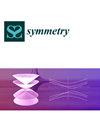Effective Two-Phase Heuristic and Lower Bounds for Multi-Stage Flexible Flow Shop Scheduling Problem with Unloading Times
IF 2.2
3区 综合性期刊
Q2 MULTIDISCIPLINARY SCIENCES
引用次数: 0
Abstract
This paper addresses the flexible flow shop scheduling problem with unloading operations, which commonly occurs in modern manufacturing processes like sand casting. Although only a few related works have been proposed in the literature, the significance of this problem motivates the need for efficient algorithms and the exploration of new properties. One interesting property established is the symmetry of the problem, where scheduling from the first stage to the last or vice versa yields the same optimal solution. This property enhances solution quality. Considering the problem’s theoretical complexity as strongly NP-Hard, approximate solutions are preferable, especially for medium and large-scale instances. To address this, a new two-phase heuristic is proposed, consisting of a constructive phase and an improvement phase. This heuristic builds upon an existing efficient heuristic for the parallel machine-scheduling problem and extends it to incorporate unloading times efficiently. The selection of the two-phase heuristic is justified by its ability to generate high-quality schedules at each stage. Moreover, new efficient lower bounds based on estimating minimum idle time in each stage are presented, utilizing the polynomial parallel machine-scheduling problem with flow time minimization in the previous stage. These lower bounds contribute to assessing the performance of the two-phase heuristic over the relative gap performance measure. Extensive experiments are conducted on benchmark test problems, demonstrating the effectiveness of the proposed algorithms. The results indicate an average computation time of 9.92 s and a mean relative gap of only 2.80% for several jobs up to 200 and several stages up to 10.带卸载时间的多阶段柔性流水车间调度问题的有效两阶段启发式及下界
本文研究了砂型铸造等现代制造过程中常见的带卸载作业的柔性流水车间调度问题。虽然文献中只提出了一些相关的工作,但这个问题的重要性激发了对高效算法和探索新性质的需求。建立了一个有趣的性质,即问题的对称性,从第一阶段到最后阶段的调度或反之亦然,都会产生相同的最优解。此特性可提高溶液质量。考虑到问题的理论复杂性为强NP-Hard,近似解是可取的,特别是对于中型和大型实例。为了解决这个问题,提出了一种新的两阶段启发式方法,包括构建阶段和改进阶段。该启发式算法建立在现有的并行机器调度问题的有效启发式算法的基础上,并将其扩展到有效地包含卸载时间。两阶段启发式的选择是合理的,因为它能够在每个阶段生成高质量的时间表。此外,利用前一阶段流时间最小化的多项式并行机器调度问题,提出了基于估计各阶段最小空闲时间的新的有效下界。这些下界有助于评估相对差距绩效度量的两阶段启发式的性能。在基准测试问题上进行了大量实验,证明了所提出算法的有效性。结果表明,在200以下的几个作业和10以下的几个阶段,平均计算时间为9.92 s,平均相对差距仅为2.80%。
本文章由计算机程序翻译,如有差异,请以英文原文为准。
求助全文
约1分钟内获得全文
求助全文
来源期刊

Symmetry-Basel
MULTIDISCIPLINARY SCIENCES-
CiteScore
5.40
自引率
11.10%
发文量
2276
审稿时长
14.88 days
期刊介绍:
Symmetry (ISSN 2073-8994), an international and interdisciplinary scientific journal, publishes reviews, regular research papers and short notes. Our aim is to encourage scientists to publish their experimental and theoretical research in as much detail as possible. There is no restriction on the length of the papers. Full experimental and/or methodical details must be provided, so that results can be reproduced.
 求助内容:
求助内容: 应助结果提醒方式:
应助结果提醒方式:


